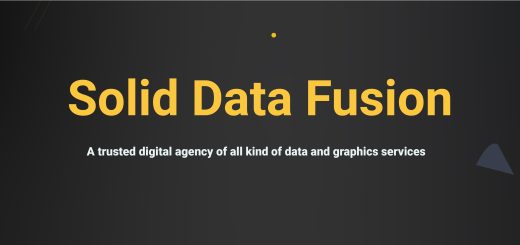Dietary Aide Certifications to Consider (With FAQs)
Dietary aide certifications can provide you with specialized knowledge and skills that can help enhance your employment prospects. These recognized qualifications demonstrate your competence and dedication to your field, giving you a competitive advantage over other candidates in your job search. By learning more about these certifications, you are positioning yourself for a rewarding career as a dietary aide.
In this article, we discuss certifications for a dietary aide and offer answers to frequently asked questions about this topic.
What are dietary aide certifications?
Dietary aide certifications are professionally recognized credentials that verify your proficiency in food service and nutrition care. They validate your expertise in areas such as food preparation, safety measures, nutritious meal planning, dietary restrictions and healthcare regulations. These certifications serve as a testament to your specialized training and commitment to quality care and continuous learning in dietary assistance. They play a key role in ensuring your ability to meet the dynamic and individual dietary needs of patients in various healthcare settings, helping to give you an edge in your career.
en-US / en-GB / en-CA JSX 2024 Careers In Care – Career Guide Promo Banner
Image description
Learn more
List of dietary aide certifications
To advance in your career as a dietary aide, consider obtaining certifications to help validate your skills and knowledge. Here are several key certifications to consider:
Certified Dietary Manager (CDM)
The Certified Dietary Manager credential offered by the Association of Nutrition & Foodservice Professionals is considered a gold standard in the field. With a CDM certification, you demonstrate a superior understanding of nutrition, food service operations and leadership, skills that are important for excelling as a dietary aide.
ServSafe Allergens certification
The ServSafe Allergens certification provides in-depth training on handling food allergies. As a dietary aide, this certification showcases your knowledge of allergen-friendly food preparation and allergenic food handling procedures, which are vital skills in healthcare or food service settings.
Dietetic Technician, Registered (DTR)
The DTR certification from the Academy of Nutrition and Dietetics can be a big step forward in your career. This certification equips you with a comprehensive understanding of food and nutrition and the ability to implement it in practical, patient-oriented settings.
Why certifications are important for a dietary aide
Certifications validate your skillset and help showcase your potential as a dietary aide. Here’s how they can help enrich your career:
Increases credibility
Having a dietary aide certification demonstrates your authenticity and commitment to professional growth. It confirms your in-depth understanding of the tasks and responsibilities in your field, thereby enhancing trust between you and your employer or the patients you serve.
Advances career progression
A professional certification can help you stand out in a pool of job applicants. Certifications set a clear trajectory for growth, leading to potential career advancements or promotions in your job.
Increases earning potential
Job positions requiring certification often offer better compensation. Your dietary aide certification can help you attain roles with increased pay scales, whether you’re starting or advancing your career.
Improved performance through skills application
Certified dietary aides are more likely to apply their hard and soft skills efficiently, leading to better patient outcomes. This improved performance benefits the individual patients and the overall healthcare setting where you’re employed.
Increases networking opportunities
Many certification programs include membership in professional organizations. These organizations often provide opportunities for networking, which could be beneficial for career advancement or learning about new industry trends.
Frequently asked questions
The following are some questions people often have about dietary aide certifications:
How do I get a dietary aide certification?
To obtain a dietary aide certification, you’ll first need to complete a high school diploma or equivalent, followed by a certificate or associate degree in nutrition, dietetics or a related field. Then, you must complete practical training and pass a certification examination from an accredited organization.
Are dietary aide certifications valid across all states?
Most certifications are recognized nationally, but check your state’s regulations regarding dietary aide certifications. For instance, qualifications like the Certified Dietary Manager (CDM) are recognized across the US, but some states may have additional criteria.
Which certification is best for a dietary aide?
The best certification for you depends on your career goals, experience and the specific requirements of your job. The Certified Dietary Manager (CDM) may be appropriate for those who want a managerial role, while the ServSafe Allergens certification is highly valuable for those focused on food safety and allergies.
Can I get a dietary aide certification online?
Absolutely. Many organizations, such as ANFP, ServSafe and the Academy of Nutrition and Dietetics, offer online certification programs. These programs are designed to fit into your schedule, allowing you to learn at your own pace and earn credentials without disrupting your current employment.
Upgrade your resume
Showcase your skills with help from a resume expert
More certifications for a dietary aide
Below are additional certifications to consider to further expand your professional growth and expertise as a dietary aide:
Certified Food Protection Professional (CFPP)
The CFPP certification from the Association of Nutrition & Foodservice Professionals (ANFP) showcases commitment to food safety. It signifies your knowledge of food sanitation, storage and protection against foodborne illness.
Certified Professional in Food Safety (CP-FS)
The National Environmental Health Association (NEHA) offers the CP-FS certification for those keen on food safety. The program ensures you’re well-versed with the latest techniques in hazard analysis and risk-based inspection, enjoying credibility among health departments and other employers.
Certified Professional – Food Safety (CP-FS)
The CP-FS is another specialized certification program provided by the NEHA, focusing on risk-based inspection, plan review study and complex food safety management systems in commercial food settings. It’s a fantastic way to hone your skills in the finer details of food safety and high-risk populations.
Certified Nutrition Support Clinician (CNSC)
The CNSC certification is offered by the National Board of Nutrition Support Certification. It’s intended for healthcare professionals who are involved in the management of patients receiving specialized nutrition support, which can be key in certain healthcare settings.



